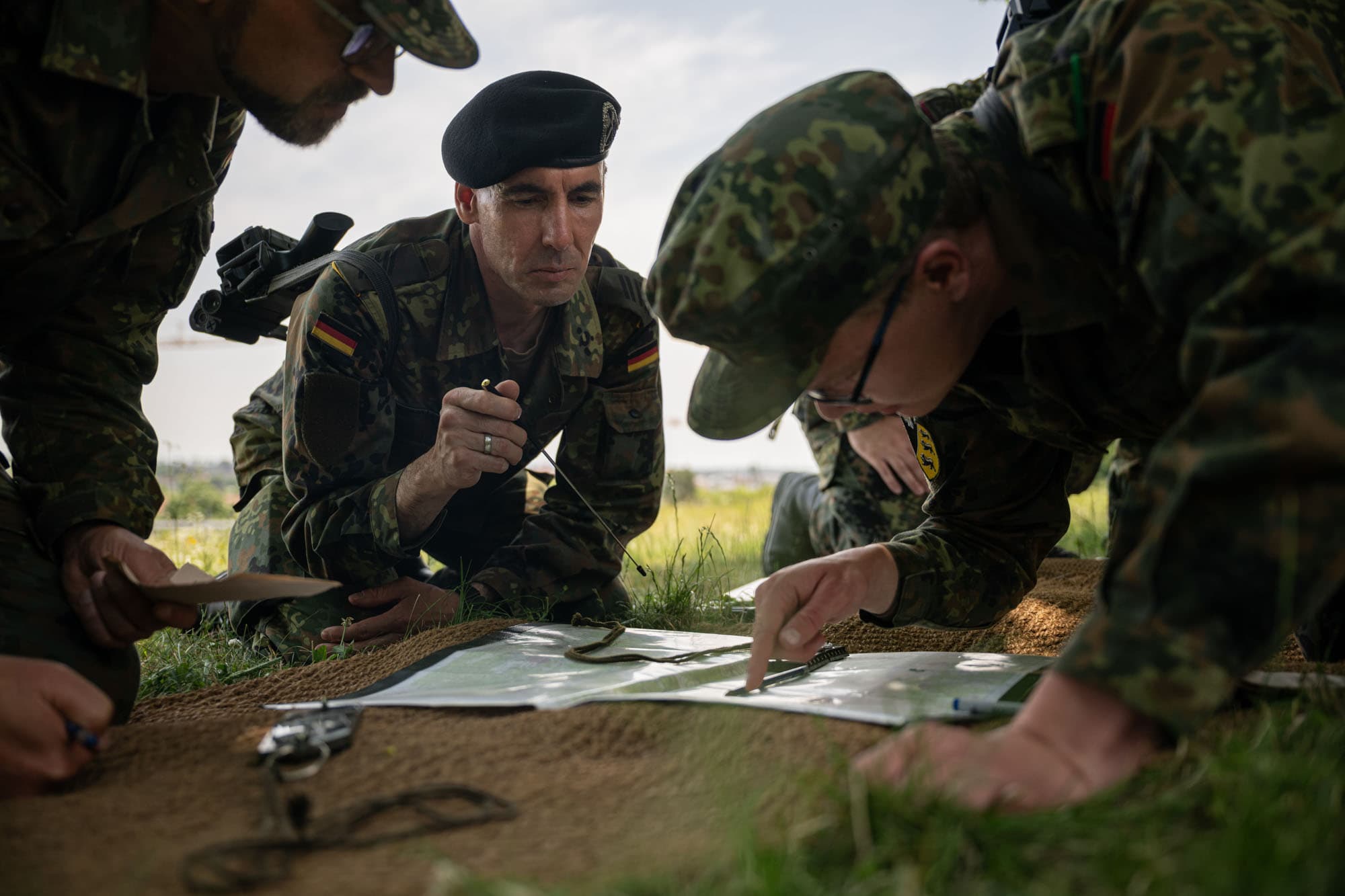We're loading the full news article for you. This includes the article content, images, author information, and related articles.
Berlin's new military service plan aims to create Europe's strongest army, a move that could significantly expand its security partnerships in East Africa, including a proposed defence pact with Kenya.

GLOBAL - Germany’s coalition government has finalised a landmark agreement to significantly boost its military personnel, reintroducing a form of military service for the first time since its suspension in 2011. Announced on Thursday, November 13, 2025, the plan is a direct response to what German officials describe as a growing threat from Russia and aims to transform the Bundeswehr (German Armed Forces) into the “strongest conventional army in Europe.” While the primary focus is on European defence, this strategic shift could have significant implications for Germany's security engagements in Africa, including a deepening partnership with Kenya.
The new model, which is expected to become law in 2026, will initially be voluntary but includes provisions for a compulsory draft if recruitment targets are not met. Starting from 2026, all 18-year-old men will be required to complete a questionnaire about their motivation and suitability for military service. This will be followed by mandatory medical screenings for men beginning in 2027. The government's goal is to increase its active troop numbers from the current level of approximately 182,000 to between 255,000 and 270,000, supported by an additional 200,000 reservists, to meet NATO targets.
The move marks a pivotal change in Germany's post-Cold War defence posture, driven by Russia's full-scale invasion of Ukraine. Top German military officials have issued stark warnings about the country's readiness. Earlier this year, Germany's Chief of Defence, General Carsten Breuer, stated that NATO must be prepared for a potential Russian attack within a few years, urging Germany to be “war-ready” by 2029. This sentiment was echoed by Chancellor Friedrich Merz, who has made bolstering the ill-equipped military a major priority.
The plan has been championed by Defence Minister Boris Pistorius, who described compulsory service as a “last resort” while emphasizing the need to make military service more attractive through incentives. The decision follows months of negotiations between the ruling coalition parties, the conservative CDU/CSU and the centre-left SPD, who settled on the hybrid voluntary-compulsory model.
While the immediate impetus for Germany's military expansion is European security, a larger and more capable Bundeswehr could enable Berlin to play a more active role in international security operations, including in East Africa. Germany already views Kenya as a key partner for promoting stability in a volatile region.
In January 2024, Kenya's Defence Cabinet Secretary Aden Duale met with German Ambassador Sebastian Groth to discuss a proposed Defence Cooperation Agreement (DCA). According to a statement from CS Duale, the framework aims to formalise and enhance collaboration in critical areas such as counter-terrorism, maritime security, cyber security, military training, and peace support operations. This builds on existing, albeit modest, security ties. A German military delegation visited Nairobi in March 2022 to explore expanded collaboration, and German company Grob established an Aviation Centre of Excellence in Nanyuki to train Kenyan military pilots.
Germany has a history of military engagement on the continent, including participation in UN and EU missions in Mali, the anti-piracy operation off the Horn of Africa, and a recently closed airbase in Niger. As the fourth-largest financial contributor to the UN's peacekeeping budget, Germany's increased personnel capacity could translate into larger troop contributions to missions in Africa, where Kenya is a major participant. A more robust German military could provide advanced training, logistical support, and technology transfer to the Kenya Defence Forces (KDF), aligning with the goals of the proposed DCA. However, any increased German military presence in Africa would be a sensitive issue, given its colonial history in the region and a post-World War II political culture of military restraint.
For now, the focus of Germany's military reform remains squarely on its domestic capabilities and NATO's eastern flank. Yet, as Berlin steps into a more assertive international role, its strategic partnerships, including the one with Kenya, are likely to gain new significance. The expansion of the Bundeswehr is a development that security and diplomatic circles in Nairobi will be watching closely.
Keep the conversation in one place—threads here stay linked to the story and in the forums.
Sign in to start a discussion
Start a conversation about this story and keep it linked here.
Other hot threads
E-sports and Gaming Community in Kenya
Active 9 months ago
The Role of Technology in Modern Agriculture (AgriTech)
Active 9 months ago
Popular Recreational Activities Across Counties
Active 9 months ago
Investing in Youth Sports Development Programs
Active 9 months ago
Key figures and persons of interest featured in this article